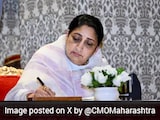- The Israeli military reportedly used a US-made 500lb bomb on a crowded cafe in Gaza City
- The attack killed at least 24 people, including children and a prominent war reporter
- Experts suggest the attack may constitute a war crime under international humanitarian law
The Israeli military reportedly used a US-made 500lb (230kg) bomb to hit a popular seafront cafe frequented by activists, journalists, and local residents in western Gaza City on Monday. On the examination of the ruins Al-Baqa cafe, it was found that Israel used an MK-82 general-purpose 230kg bomb to attack unprotected civilians, including children, women and elderly people.
Experts believe the use of the powerful and indiscriminate weapon-- that generates a massive blast wave and scatters shrapnel over a wide area-- on civilians was almost certainly unlawful and may constitute a war crime, according to a report by The Guardian.
The International Humanitarian Law under the Geneva Conventions forbids military forces from launching attacks that cause "incidental loss of civilian life" that is "excessive or disproportionate to the anticipated military advantage."
At least 24 people-- including prominent war reporter and Palestinian filmmaker Ismail Abu Hatab, a 35-year-old housewife and a four-year-old child--were killed in the attack on the once bustling seafront spot. Among the injured were a 14-year-old boy and a 12-year-old girl. The port area where the two-storey cafe was located was not covered by any of the evacuation warnings issued by the Israeli Defence Forces (IDF) before the impending military operations.
IDF said the strike on the cafe was under review and that "prior to the strike, steps were taken to mitigate the risk of harming civilians using aerial surveillance".
What Experts Said
What is considered acceptable in wars is open to interpretation. However, experts said that only a target whose elimination might have a very significant impact on the course of a conflict could justify the death of dozens of civilians.
Gerry Simpson, of Human Rights Watch, told The Guardian that the Israeli military did not specify exactly whom it was targeting, but it said it used aerial surveillance to minimise civilian casualties, "which means it knew the cafe was teeming with customers at the time."
"The military would also have known that using a large guided air-dropped bomb would kill and maim many of the civilians there. The use of such a large weapon in an obviously crowded cafe risks that this was an unlawful, disproportionate or indiscriminate attack and should be investigated as a war crime," he noted.
Marc Schack, an associate professor of international law at the University of Copenhagen, noted that it is almost impossible to "justify" the use of that kind of munition on a civilian target.
"If you are talking about 20, 30, 40 or more civilian casualties, usually that would have to be a target of very great importance ... For coalition forces in Afghanistan and Iraq, the accepted number for a very high-level target was less than 30 civilians getting killed, and only then in exceptional circumstances," he told the British publication.
According to Andrew Forde, assistant professor of human rights law at Dublin City University, the use of heavy munitions in crowded civilian space, "even with the best targeting in the world ... that will necessarily create an indiscriminate outcome that is not in compliance with ... the Geneva conventions."
About Al-Baqa cafe
Al-Baqa cafe had so far survived more than 20 months of war and intense bombings on the Palestinian territory, and had become a gathering spot for those not displaced by the conflict.
A few weeks ago, the cafe was once again able to offer an internet connection, attracting its pre-war clientele back. With food only trickling into Gaza, the kitchens were closed, but customers could still get a cup of tea to drink against a backdrop of destruction.
"There's always a lot of people at that spot, which offers drinks, spaces for families, and internet access," said Ahmad al-Nayrab, 26, who was walking on the nearby beach when he heard a loud explosion.
"It was a massacre," he told the news agency AFP.
Maher al-Baqa, who co-owns the establishment, told AFP that it is "one of the most well-known cafes on the Gaza coast, frequented by educated youth, journalists, artists, doctors, engineers and hardworking people".
"Young people are fleeing the tragedies and difficult conditions in Gaza. They come here for work meetings or just to relax a little."















